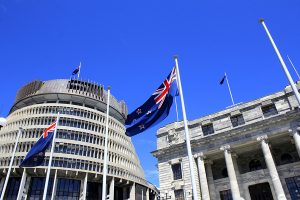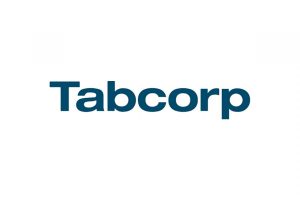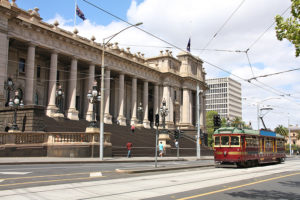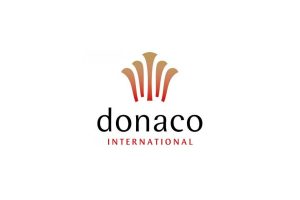Carl Brincat: “Above all else, safe, sustainable, and responsible gambling is of paramount importance to the gaming sector”
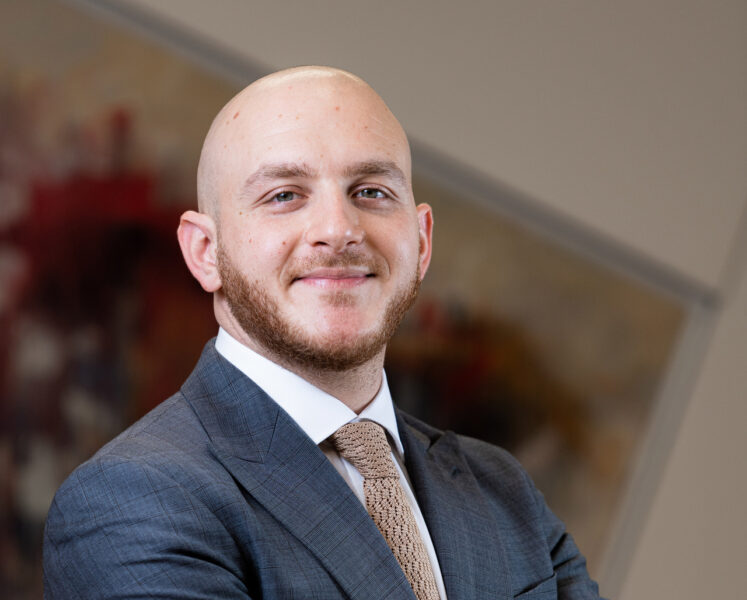
Carl Brincat, CEO at the Malta Gaming Authority, speaks about the gambling sector in Malta, MGA’s strategy and its presence at Regulating the Game in 2023.
Exclusive interview.- Focus Gaming News caught up with Carl Brincat, CEO at the Malta Gaming Authority (MGA) to talk about the regulator’s work and strategy, responsible gaming, AML controls and his expectations for Regulating the Game.
Could you tell us about the gambling sector in Malta and what is MGA’s approach to licensing? How does an operator apply for a licence and how does the MGA approach operator suitability and probity and what are the key risks in the sector?
As of the end of 2021, the MGA had 341 companies in operation, holding a total of 351 gaming licences, covering both online and land-based gaming activities. Out of these, online gaming operators had a total of 197 B2C licences and 144 B2B licences, with the remaining pertaining to the land-based operators.
“Our approach to licensing is to have a process that is streamlined and focused on the areas of greatest importance to ensure that anyone being granted an MGA licence is fit for purpose.”
Carl Brincat, Chief Executive Officer at the Malta Gaming Authority.
By and large, there are 4 main pillars underpinning the licensing process:
- The Fit and Proper aspect focuses on the people behind the company – both in terms of the ultimate beneficial owners (UBOs) and the source of the funds they are investing in the company and their source of wealth, as well as the people running the company (the directors and persons performing key functions);
- The Business Plan focuses on the projections that the company presents, the viability of the business and its funding;
- The Technical aspect enables the MGA to understand the technical setup and offering (i.e. the type of game/platform); and
- Specific focus on areas that have the greatest impact on adherence to legislation that directly relates to our regulatory objectives, such as AML/CFT (Business Risk Assessment, Customer Acceptance Policy, Customer Risk Assessment etc.), responsible gambling, and – where relevant – sports integrity practices.
The MGA reviews each pillar in parallel to render the process more efficient and proceeds with flagging any risk factors to the relevant internal committees for a decision on whether a licence ought to be granted or not.
Could you discuss MGA’s strategy and vision and how it manages the tension between encouraging investment, economic development and innovation with robust regulation and industry oversight?
The MGA and the Government work very hard to ensure that Malta remains the home of choice for operators of good will.
We are committed to keeping an open and collaborative dialogue with the industry, as evidenced by the frequent workshops we organise, thus creating a space for such feedback to be freely communicated to us.
This, in turn, enables the Authority to regulate a market space that is simultaneously competitive and safe. Our view is that robust regulation and oversight if done well and in a spirit of collaboration with the industry, does not undermine efforts to encourage investment, economic development and innovation; rather, it is complementary to such efforts.
Regulated industries need legal certainty and clarity of regulatory expectations to invest with peace of mind, and the business cannot be truly viable for a long period of time without ensuring that it provides its services in a well-regulated and sustainable manner.
We also make sure to continuously advise the Government, in line with the responsibility that we have in terms of our governing law, on measures outside our regulatory responsibilities that are required to keep Malta attractive as a place of establishment for the industry, because in terms of the economic value to the country that is vital.
MGA’s is at the vanguard when it comes to its work towards cryptocurrency as a means of payment and embracing innovative technology within its regulatory framework. How is MGA approaching this work and what are benefits for the regulator and customers?
Cryptocurrencies have been described as a disruptive phenomenon in the digital currency and technology field. The hype for their potential is also found in the gaming sector, which can ultimately benefit from the use of this technology.
The MGA’s strategy is to embrace the technology, whilst adopting a prudent approach to ensure the protection of regulatory safeguards. To this end, the MGA created a regulatory sandbox, where operators were able to make use of the technology, including accepting cryptocurrencies as a means of payment and using smart contracts.
The benefits vary depending on the nature of the operation. For instance, some operators opt to accept cryptocurrencies to reach a wider audience, whilst others use the technology for day-to-day operations, using the transparent and immutable characteristics of the technology as a core element of game fairness, as well as regulatory compliance.
The MGA is currently carrying out a targeted consultation to gather feedback on a policy that has the aim to solidify the MGA’s approach towards the technology.
Responsible gambling remains a dominant framework within the sector and while there is some argument about the best means to define and measure gambling harm problem gambling prevalence surveys typically show problem gambling rates as static or no statistically significant movement. What is the MGA’s approach to responsible gambling and what are the priorities and innovation in this important area?
The Malta Gaming Authority’s position is that, above all else, safe, sustainable, and responsible gambling is of paramount importance to the gaming sector.
Our overriding objectives are to promote responsible gaming and to safeguard players’ rights. The Authority’s aim is to ensure that all players can gamble in a safe, secure, and sustainable manner, mitigating the risk of gambling problems or gambling-related harm. This is a shared responsibility between the player, the operator, and the Authority.
Player protection has always been a cornerstone of gaming regulation and this is reflected in the Maltese legal framework. The MGA has recently launched a targeted consultation regarding amendments pertaining to the Player Protection Directive.
The amendments are aimed to strengthen and clarify the current player protection framework which, in turn, will support the MGA’s initiatives moving forward and will facilitate our plans to continuously improve the player protection framework, including the eventual publication of detailed player protection guidelines.
The new amendments introduce five markers of harm that indicate that a player may be experiencing problematic gambling. There are also a multitude of responsible gaming tools available that players are strongly advised to utilise, to manage and maintain control of their gambling.
As technology advances, Artificial Intelligence (AI) can be utilised further to identify and develop more effective markers of harm. In using AI, both the Authority and the operators would be able to better ascertain which players may be more at risk of developing issues in controlling their gambling, long before the more traditional markers of harm are visible. In this way, tangible and viable steps can be taken to protect players, before the issue would have arisen.
The Responsible Gaming Unit within the Authority proactively conducts checks on licensed operators, assessing their capabilities to adequately detect and assist any players who may be experiencing problematic gambling or gambling-related harm.
Where necessary, feedback is provided to the operator, where they are given 20 days in which to inform the Authority of the steps they would need to take to rectify any issues found, alongside a timeline for implementation of changes which the operator would commit to making to enhance their responsible gaming processes.
“The Malta Gaming Authority’s position is that, above all else, safe, sustainable, and responsible gambling is of paramount importance to the gaming sector.”
Carl Brincat, Chief Executive Officer at the Malta Gaming Authority.
What does the anti-money laundering framework involve in Malta, what is the MGA’s role and how does it ensure the gambling sector is hardened against the risk of financial crime?
In Malta, the Financial Intelligence Analysis Unit (FIAU) is the country’s principal regulator for the purposes of anti-money laundering (AML) legislation and is responsible for the collection, collation, processing, analysis and dissemination of information to combat money laundering (ML) and the funding of terrorism (FT).
The MGA has in place an Anti-Money Laundering (AML) Unit, which acts as the lunga manus of the FIAU in terms of the Prevention of Money Laundering Act (Cap. 373 of the Laws of Malta).
Our AML Unit acts, on behalf of and together with the FIAU, as a supervisor on gaming companies to ensure that they have the necessary controls and safeguards in place to detect and report any suspicious activity or transactions. Such supervision may take various forms, ranging from supervisory meetings to full-scope examinations, which entail both offsite and onsite audits.
The MGA also caters for other risks through its prudential supervision processes. We utilise a risk-based approach to establish which operators, in terms of the risks identified, must be re-evaluated and hence be subject to a compliance audit.
Compliance Audits are comprehensive reviews of licensees’ adherence to the Gaming Act, subsidiary legislation and technical standards, which is achieved by analysing the licensees’ operations, information systems, and policies and procedures.
Regulating an industry that is – by nature – international, close collaboration with both local and international stakeholders is vital, and it is for this reason that the MGA gives a lot of importance to the creation and maintenance of good relationships with our regulatory counterparts in other jurisdictions, as well as with judicial and law enforcement authorities.
We are looking forward to the CEO of the MGA speaking at Regulating the Game in 2023 and believe it’s a tremendous opportunity to hear about the MGA’s regulatory approach and priorities, as well as the CEO’s thinking and insights about the sector and known and emerging challenges. Can you share any thoughts about your experience and expectations for Regulating the Game and who is attending from the MGA and what they hope to get out of the program?
I will attend Regulating the Game together with Brandon Debattista, Head of Legal and Regulatory Affairs, and James Baldacchino, Head of Legal and Enforcement.
I believe that the 5-day regulation programme will serve as a great platform for the exchange of valuable perspectives on regulatory environments and challenges that different jurisdictions face.
I look forward to the sharing of best practices and of furthering our collaboration with other regulators and industry stakeholders. Increased collaboration results in greater efficacy in supervising a safe and responsible gaming environment across the board.





